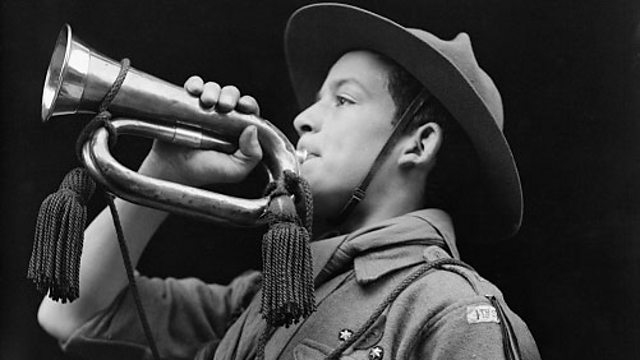Southport: Scouting on Merseyside
How the emerging scouting community contributed to war
Scouts are well known for their good deeds, and during World War One, they gave more than a helping hand.
Established just seven years earlier by Sir Robert Baden Powell, the organisation was just starting to grow, and across Liverpool and Lancashire as it was at the time, newly formed groups were about to help their local communities massively.
In 1914, as many people signed up to serve for their country, new demands were put on the Home Front. Sir Robert Baden Powell called upon scouts ‘to do their bit’. The young movement were ideally placed to fill these roles.
Initially the scouts gave their services in recruitment offices - helping with administration, handing out leaflets and acting as messengers.
However, as the war progressed, as did their responsibilities. One of the earliest proficiency badges was in First Aid, their skills were put to use here in hospitals and convalescent homes, often acting as orderlies.
They were also guarding important infrastructure as well as the coast – keeping watch for enemy ships. Food cultivation became vital as the German U-boat campaign threatened food supplies.
Scouts received farming badges for helping to grow and harvest fruit and vegetables for the people of the country.
Fundraising was also important, with enough money being raised across the country for five ambulances to be sent to the front line.
Prime Minister David Lloyd George praised the work of the scouts saying: “It is no small matter to be proud of that the Association was able, within a month of the outbreak of war, to give the most energetic and intelligent help in all kinds of service”
Location: Southport PR8 1AQ
Image: A boy scout blowing the bugle, courtesy of IWM
Duration:
This clip is from
Featured in...
![]()
�鶹�� Radio Merseyside—World War One At Home
Places in Merseyside that tell a story of World War One
More clips from World War One At Home
-
![]()
The loss of HMY Iolaire
Duration: 18:52
-
![]()
Scotland, Slamannan and the Argylls
Duration: 07:55
-
![]()
Scotland Museum of Edinburgh mourning dress
Duration: 06:17
-
![]()
Scotland Montrose 'GI Brides'
Duration: 06:41







